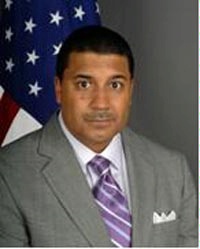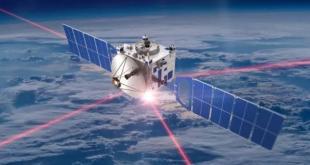
A senior US government official has announced that the United States should like to enter in to space security dialogues with Gulf Cooperation Council (GCC) member states in the coming months.
Speaking at the 32nd Space Symposium in Colorado Springs, Colorado, on 14 April 2016, the US Assistant Secretary of State for Arms Control, Verification, and Compliance, Mr. Frank A. Rose, said of space security dialogues with other America allies, “In many cases, our candid discussions have given the US a better appreciation of our partners’ perspectives and helped identify areas of operation and coordination,”
“I believe that most of these nations have a similar view of a space environment that is safe secure and sustainable,” added Mr. Rose, referring to the space security dialogues that already take place with countries like Turkey, Israel, India, Japan, Australia, and many European countries.
As Assistant Secretary of State for Arms Control, Verification, and Compliance, Mr. Rose is the senior US official who leads the U.S. delegation in these space security dialogues. The US delegation usually includes State Department officials as well as military advisors from US Strategic Command (USSTRATCOM) and US Air Force Space Command (AFSPC), and officials from the Department of Defense, the National Aeronautics and Space Administration (NASA), and even intelligence officers if required.
Delegations from countries with whom the US has space security dialogues are also similarly composed of officials and military advisors from a range of government departments and military commands.
Assistant Secretary of State Rose added that, “[I]n this dynamic environment, diplomacy can assist in addressing the challenges of developing guidelines for space operations and orbital debris mitigation, and encouraging responsible behavior in space through the development of norms and voluntary transparency and confidence-building measures. Diplomatic engagements also provide an opportunity to enhance a common understanding of the goals and challenges related to the outer space environment, thus creating support for U.S. policy.”
In a press briefing with US publication Defense News in Colorado Springs on 14 April 2016, Admiral Cecil D. Haney, US Navy, the Commander of USSTRATCOM, declined to identify which GCC states will be participating in the upcoming space security dialogues, so as not to upset diplomatic sensitivities.
Admiral Haney, however, did say that international cooperation in space security is of great importance to US and allied interests.
“We must have an approach that includes collaboration and partnership with our interagency, as well as our allies, partners and commercial entities…We cannot do it alone,” Admiral Haney said.
“This sharing paradigm fosters the responsible use of space by promoting transparency, enhancing spaceflight safety, and enabling exchange-focused relationships,’ he added.
On Monday, 11 April 2016, the UAE Space Agency and USSTRATCOM signed a Memorandum of Understanding setting out arrangements for the sharing of space situational awareness data between the UAE and the United States. Further, it is known that UAE space officials have been in discussions with the US State Department for over a year about possible cooperation between the two countries.
While Mr. Rose and Admiral Haney have not identified the GCC members they hope to have space security dialogues with, it is very likely that they will be the UAE, Saudi Arabia, and possibly Qatar, since these three are the only GCC states with significant space interests to date.
With the possible emergence in the coming years of Iran as a significant space power in the region, as well as Russian military space activities over Syria and other parts of the Middle East, all combined with the turbulent geopolitics of the region, space security issues are becoming more important for regional security overall.
Mr. Rose emphasized the need for space security dialogues in the context of a more unsettled geopolitical era, stating that, “[O]ur diplomatic efforts are also focused on raising international understanding of the global consequences of conflict in outer space. Preventing or deterring such conflict is a global interest for all countries, because the resulting impacts of that conflict would not be limited to the militaries and countries involved, but would extend to all space-farers and all who depend upon space – which is pretty much everyone on this planet.”
The possibility of space security dialogues with the United States could allow both the US and GCC states a greater understanding of regional security concerns as they apply to space, as well as possible ways to cooperate in order to mitigate those concerns.
 SpaceWatch.Global An independent perspective on space
SpaceWatch.Global An independent perspective on space

